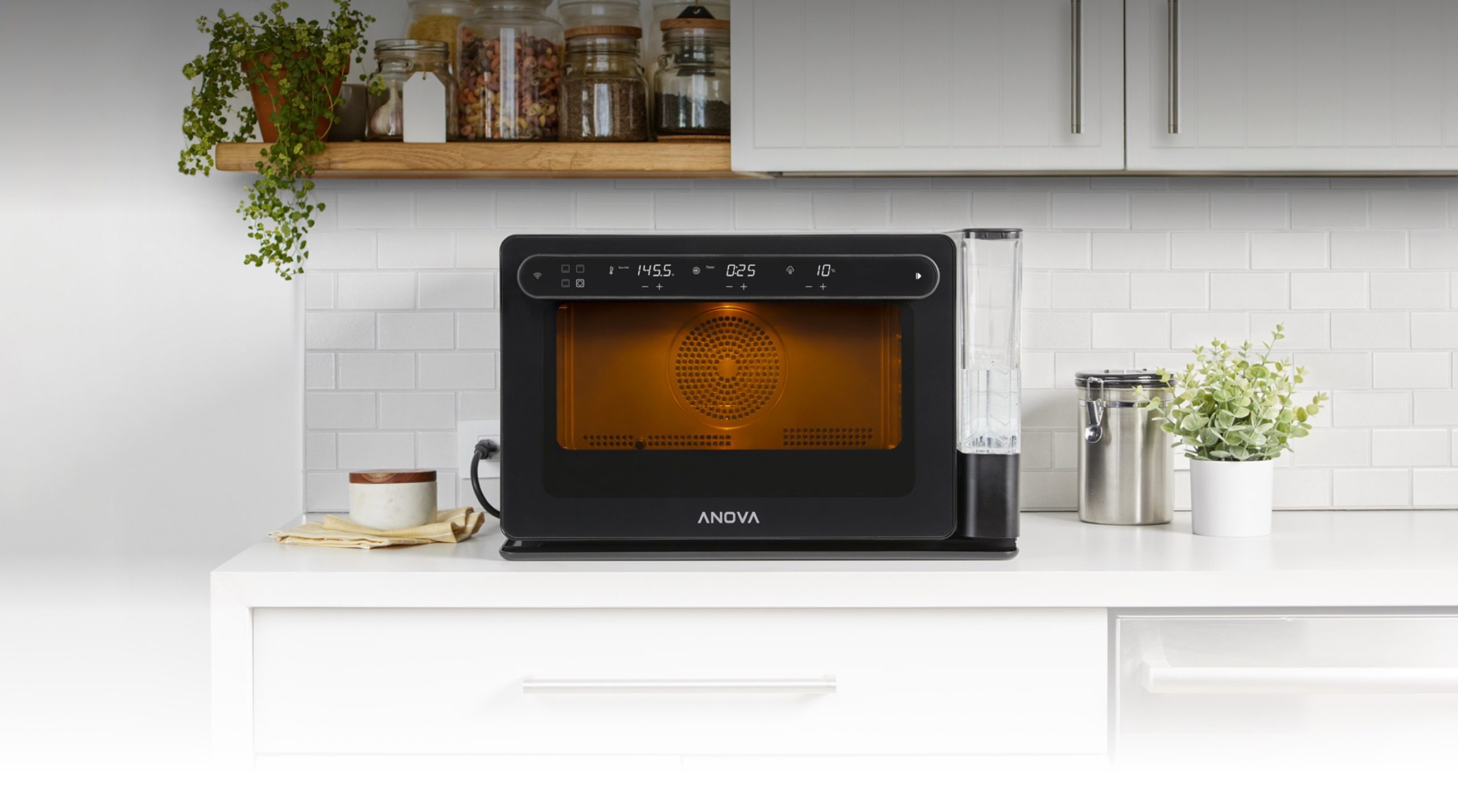2021-09-12 16:38:03
Seattle, WA

Overclocking Sourdough Fermentation With the Anova Precision Oven
Sourdough bread making is easily one of the hardest things we’ve ever tried to master. On a scale of 1-10 we would consider our sourdough bread mastery skill a level 5. This is how we grade our own sourdough mastery skill using the following criteria.
To achieve level 10 one would have to consistently make “Instagram” grade sourdough, a bread with a consistent and even large open crumb. While we hope to one day achieve and master this skill, to date, we’ve never been able to produce that level of crumb.
To earn a sourdough bread mastery skill of 1, one would need to make a flat or concave (equally impressive btw) bread with no crumb or structure. Essentially a pancake or hockey puck.
We consider a mastery skill of 5 to be a sourdough that has wonderful oven spring and a consistent and even crumb. Below is a chart to summarize.
1 – Flat, no crumb/structure.
2 – One time made textbook grade bread, however, never been able to reproduce.
3 – Consistent textbook sourdough, however, can’t reproduce on demand.
4 – Almost there.
5 – Textbook sourdough with good oven spring and consistent / even crumb.
6 – Your best sourdough yet.
7 – One time made Instagram grade bread, however, never been able to reproduce.
8 – Sometimes make Instagram grade bread.
9 – Most of the time make Instagram grade bread.
10 – Instagram God.
If you goal is to make Instagram grade bread, then this article probably won’t be of much help. If your goal is to make a reasonably good sourdough, then this article might be of interest.
We started our sourdough journey by fermenting the dough at room temperature which at our home equates to 73F. Via this process we are able to consistently bake grade 5 bread, one with wonderful oven spring and a consistent and even crumb. This process is very forgiving and provides a lot of leeway during the fermentation process, as much as 2-4 hours to hit that sweet spot. The downside is it takes forever.
Using our recipe, with our levain at 73F means the dough takes anywhere between 12-16 hours to complete fermentation. While we enjoy the process of making sourdough and continue to ferment our dough at room temperature there are times where we don’t have 12-16 hours to make a sourdough. What if we told you that you could make the exact same bread in a third of the time?
You can by controlling the fermentation process and we do that with the Anova Precision Oven (APO). Do you need an APO to achieve similar results? Simply stated, no, however we have one and enjoy using it because of its simplicity and consistency. In a previous post we explained how to configure your APO to consistently proof dough. In this post, we’ll explain how controlling the fermentation process by adjusting temperature can drastically decrease the amount of time needed to complete the fermentation process and make the exact same bread (grade 5 sourdough).
To overclock the fermentation process all you need to do is simply increase the temperature at which you ferment the dough. Using the exact same recipe at 80F allows us to complete fermentation in 3-4 hours instead of 12-16 hours. There’s a catch. We equate fermenting dough at room temperature to that of walking. When you ferment dough at 80F you’re now at a full sprint.
At room temperature you have a leeway of 2-4 hours to hit that sweet spot. At 80F it’s drastically reduced to 20-30 minutes. That window of opportunity to perfectly ferment your sourdough is much shorter and 20-30 minutes is the difference between an under proofed, proofed, or over proofed sourdough. Other than that the two sourdoughs made, one at 73F and one at 80F are identical bread.
Being the curious type, we asked the next logical question, how far does this scale? Our tests have shown no serious gluten degradation until you pass the 90F threshold. The downside being if you equate a fermentation at 80F to be a full blown sprint, then 90F is Captain Insano. The window of opportunity to hit that sweet spot is 5-10 minutes and the time required to complete fermentation is 1-3 hours. There’s a huge disclaimer. While fermenting at 90F is doable, it’s hit or miss, and we struggle to achieve consistent results so your milage may vary.
Up next is to determine how fermentation is impacted when you do so at 65F. Unfortunately the APO is of no help here unless one of you have ideas. =)